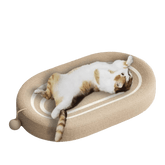Sale up to 60% OFF on everything*Shop now!
Weekly special offers
New products
View All- $99.00
- $99.00
- Unit price
- / per
Featured products
View All- from $79.00
$168.00- from $79.00
- Unit price
- / per
- from $49.90
- from $49.90
- Unit price
- / per
- from $149.00
- from $149.00
- Unit price
- / per
- from $99.00
- from $99.00
- Unit price
- / per
- from $39.00
- from $39.00
- Unit price
- / per
- from $69.90
- from $69.90
- Unit price
- / per
Lorem ipsum dolor sit amet, consectetur adipiscing elit. Fusce viverra vehicula ante. Maecenas vulputate lectus sed dolor finibus laoreet id nec tellus. Integer ac justo condimentum, faucibus arcu ac, dapibus nisl. Praesent in sapien sagittis, convallis tortor at, dapibus libero. Mauris dictum magna mi. Donec est est, aliquet ut lorem ut, viverra sollicitudin magna. Nullam non lectus id enim placerat pulvinar. Suspendisse potenti. Nulla nec velit at sem varius convallis vel sed sem. Orci varius natoque, penatibus et magnis dis parturient montes, nascetur ridiculus mus...










